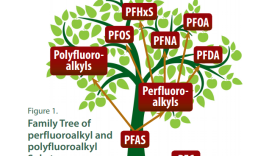New York Congressman Antonio Delgado recently wrapped up his first in-district work week of the year. The Democrat from the 19th district has been working to get to the bottom of an issue concerning federal funding for rural broadband.
The week prior to Delgado’s January 28 press call, the Federal Communications Commission announced its first round of Rural Digital Opportunity Fund allotments to help fill gaps in rural broadband. New York was excluded from Phase 1, erasing an opportunity for the providers in the state to bid for $16 billion in broadband infrastructure funding.
“An absolute travesty for a good number of folks upstate living without broadband,” Delgado says. “I led a bipartisan letter with 22 members urging the FCC to reconsider and add New York to this funding allotment.”
That bipartisan group of New York congressional lawmakers who signed the January 17 letter to FCC Chair Ajit Pai included Democrats Anthony Brindisi, Eliot Engel, Nita Lowey, Sean Patrick Maloney and Paul Tonko, and Republicans Elise Stefanik and John Katko. Delgado says he spoke with Pai directly and was given two reasons.
“He said that we received CAF funding prior and they’re fearful of the risk of double payment and are waiting to hear from New York, the state, about what other folks out there might not have been covered by those funds,” says Delgado. “I told him that there are a number of other states that also received funding and are not being asked to prove that there are unserved communities.”
CAF is the FCC’s Connect America Fund. The day of his press call, Delgado wrote a follow-up letter to Pai, addressing the chairman’s two concerns. On January 30, the FCC reversed its decision blocking New York from rural broadband funding. At issue is the FCC’s inclusion of a footnote that would have excluded all of New York from participating in the program’s Phase I auction, leaving tens of thousands of homes without high-speed broadband service. The footnote was eliminated before the FCC’s final vote Thursday. Along with this change, Delgado says the FCC revised its eligibility requirements.
Delgado says he is pleased that the FCC reversed its decision. At $20.4 billion dollars, Delgado says the fund represents the primary source of all federal broadband funding for the next decade and nearly 80 percent will be spent during the program’s Phase I auction.
Meantime, as the New York state legislature considers whether to legalize recreational marijuana, Delgado says he supports protections for bankers.
“I’ve already co-sponsored and supported a bill — and I think that passed the House, the Safe Banking Act — which would allow for banks to lend to cannabis-based businesses without, that are following state law, that would protect the banks from any liability,” says Delgado. “So, literally have done exactly just that in the House and will continue to urge the Senate to take the bill up.”
The House passed the Safe Banking Act in September. During the in-district work week, Delgado met with his four bipartisan advisory committees — health care, small business, agriculture and veterans — and spoke during four Chambers of Commerce events.
“So in addition to broadband and cell service, I would add we need to really make sure that we’re focusing in on access to capital and empowering our community banks to provide lending. Workforce development is going to be critically important. A lot of our small business owners are talking about ? a skills gap, so they’re just not finding the folks who are trained in trades or vocational schools or even apprenticeship programs that specifically meet their needs and help them grow out their businesses,” Delgado says. “And so we have to get back to making sure when we think about education, we’re not just thinking about four-year college education, we’re thinking about the work that’s being done in community colleges; we’re thinking about the work that’s being done in career/technical education; we’re thinking about BOCES programs. We’re doing everything we can to empower those groups and those organizations that are on the frontlines training our folks.”
He says there is a need for affordable housing, specifically, workforce housing.
“If you’re a young family or if you’re trying to come up to the district and settle in or you’ve been there for a while and you got a job and you want to build your family, and you’re looking around, you can’t find affordable housing, it’s tough to want to stay and lay your roots there,” Delgado says. “So I think we have to be better about robust investment in that space and make sure that people are able to use their income in a fashion that allows them to lay roots in their communities. And that means making sure that HUD [U.S. Department of Housing and Urban Development] is properly doing what it needs to do and investing in these communities, and we’re prioritizing this issue across the board.”
Delgado’s 19th District that stretches across 11 counties is the third most rural Democratic-held district, and the eighth most rural district overall.








